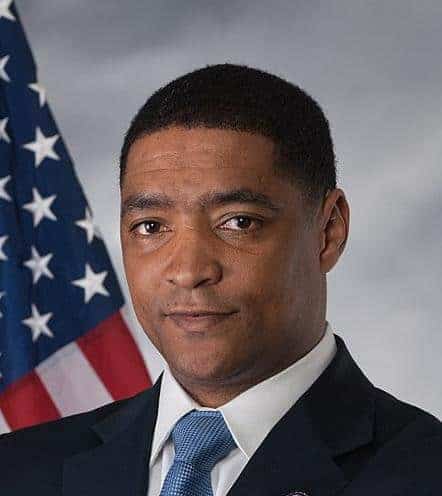
By Lauren Victoria Burke, NNPA Contributor, | During a conference call with reporters, Rep. Cedric Richmond (D-La.), the chairman of the Congressional Black Caucus (CBC), pledged to revisit the debate around impeachment when Congress returns after Labor Day and announced a new campaign to #RootOutRacism in the White House.
Richmond promised a “robust discussion” about impeachment by the CBC when Congress returns on September 5. The House of Representatives hasn’t been in session since July 28; members often travel to their home districts during the August recess.
With more than 400 days until the midterm elections of 2018, the CBC reaffirmed a position against the Trump Administration that would indicate that not much will change until Democrats are able to win a majority in the House or Senate. Richmond insisted that the CBC will continue to focus on policies that impact African Americans, rather than the political spectacle that fills hours of cable news broadcasts.
In response to President Trump’s recent comments about the White nationalists’ rally in Charlottesville, Va., that was attended by Ku Klux Klan members, neo-Nazis and White supremacists, the CBC has reaffirmed a hard stance against the Trump Administration. The CBC declined an invitation to meet with Trump, weeks ago.
“Things will always reveal themselves if [we] give people time to do it,” said CBC Chairman Cedric Richmond (D-La.) regarding President Trump. Richmond mentioned that members of the CBC held a recent conference call and that civil disobedience had not been ruled out as they confront Trump’s policies.
“We’ve come to the conclusion that we are in a sad and shameful place,” Richmond told reporters. He then pointed to Trump advisors Sebastian Gorka and Stephen Miller by name as two members of the administration who, in his view, should not continue to work at the White House because of their White supremacist views.
“The people who work in the White House should not be White nationalists or White supremacists,” added Richmond. “This country is having a crisis of leadership.”
In a June 9 invitation, Trump had requested that all of the members of the CBC meet with him on a quarterly basis. On June 21, CBC leadership declined any further meetings with the president. Members of the five-person CBC board met with President Trump and Vice President Mike Pence on March 22.
On the question of impeachment, Minority Leader Rep. Nancy Pelosi (D-Calif.) has balked at the idea that House Democrats would back impeachment proceedings for this president and has pressed members not to call for such a move.
But three Black Caucus members, Rep. Al Green (D-Texas), Rep. Maxine Waters (D-Calif.) and Rep. Gwen Moore (D-Wisc.) have supported the idea. Rep. Green has gone as far as drafting detailed articles of impeachment.
Richmond was also critical of the president’s response to the needs of Historically Black Colleges and Universities (HBCUs).
“They brought all those HBCUs to town. They took a picture in the Oval Office and then they did nothing,” said Richmond. “If you look at President Trump’s budget, he has a number of actions in it that actually hurt HBCUs.”
White House Communications Director for the Office of Public Liaison, Omarosa Manigault is organizing the annual HBCU conference scheduled for September 17-September 19 in Washington, D.C.
“He still has a [HBCU] commission, he still hasn’t named anyone to,” said Richmond. “Omarosa is still pretending to have influence with this president. I’m just surprised that she’s still there as an African American woman after his latest comments.”
Richmond said that he wouldn’t be surprised, if many of the HBCU presidents declined to show up for the annual event.
“If they postpone it, great. If they cancel it, great,” said Richmond. “What I’d rather see, besides a conference and a fly-in day, is some substantive policies to help these schools with their scholarships, with their campuses, with their infrastructure.”
Richmond continued: “I don’t think you need a conference in [Washington, D.C.] to do that. This White House is not serious about improving our HBCUs, our institutions of advancement.”


